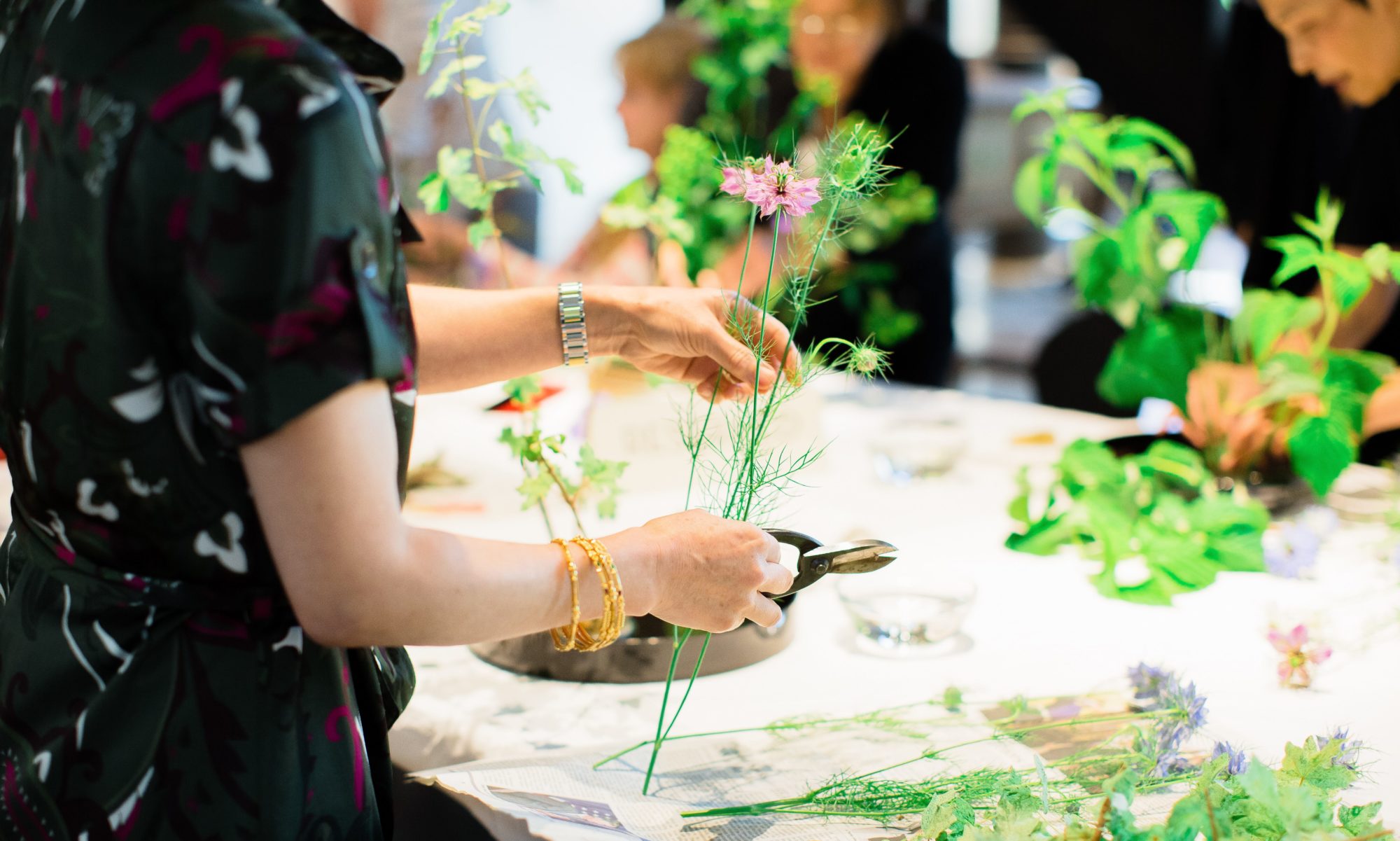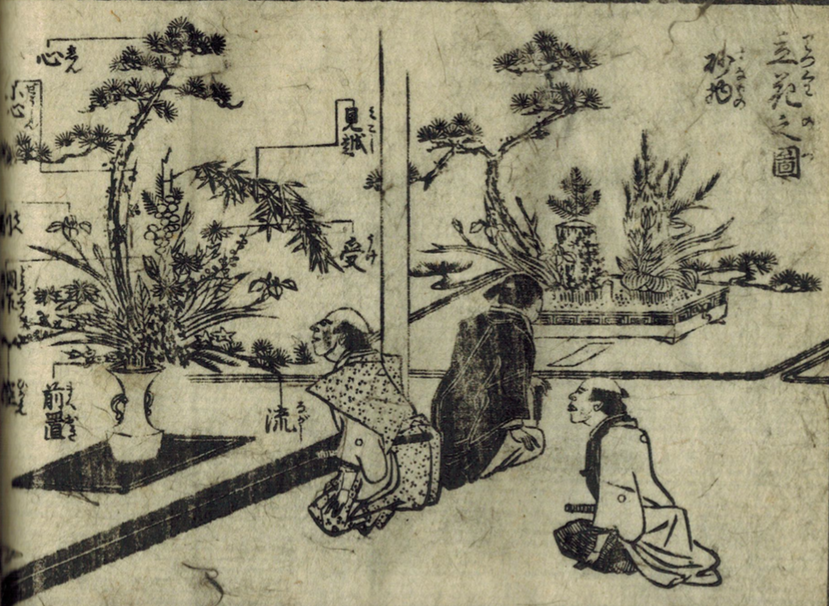Ever since the human beings have existed on earth, we have been surrounded by plants. Blessed with relatively moderate climate with distinct four seasons, people in Japan have enjoyed various kinds of plants and flowers all year round.
Plants as Part of Religious Rituals
In the winter, most of the trees lose leaves and many plants disappear. Pines trees, however, remain green. The vivid green in the winter must represent the resilient life. So Shito, Japan’s native religion, has used pine branches for its rituals, including the New Year’s decoration.
Plants were also used for in Buddhist rituals. The typical flowers used in India, where Buddhism was originated, were lotus. In Japan, the rituals were adapted to use various seasonal flowers.
Ikebana Patronized by Samurais
The origin of Ikebana as we see today dates back to Muromachi period in the 15th century. Ruling samurai clan started to build gorgeous houses with an alcove called “tokonoma”, a special space to display their precious treasures. The samurai showed off their ornate vases originated from China by decorating them on tokonoma. It was one of the tasks of “Dohoshu,” usually Buddhist monks who served Muromachi shogunate and other powerful samurai, to decorate the tokonoma with beautiful flowers and plants.
One day, Ikenobo Senkei (池坊専慶), a Buddhist monk of Rokkakudo Temple in Kyoto was invited to a samurai’s residence and made a gorgeous flower decoration. It was so well received that one of the contemporary Buddhist monks wrote about the decoration in his journal! Thanks to this monk, we know that it was precisely in 1462.
Hence Rokkakudo Temple is said to be the birth place of Ikebana, and Ikenobo School is said to be the origin of Ikebana.
When I first learned about Samurai in school, they were simply “professional worrier class.” Ikebana patronized by samurai clan…. Isn’t it interesting to find out new things in history?


